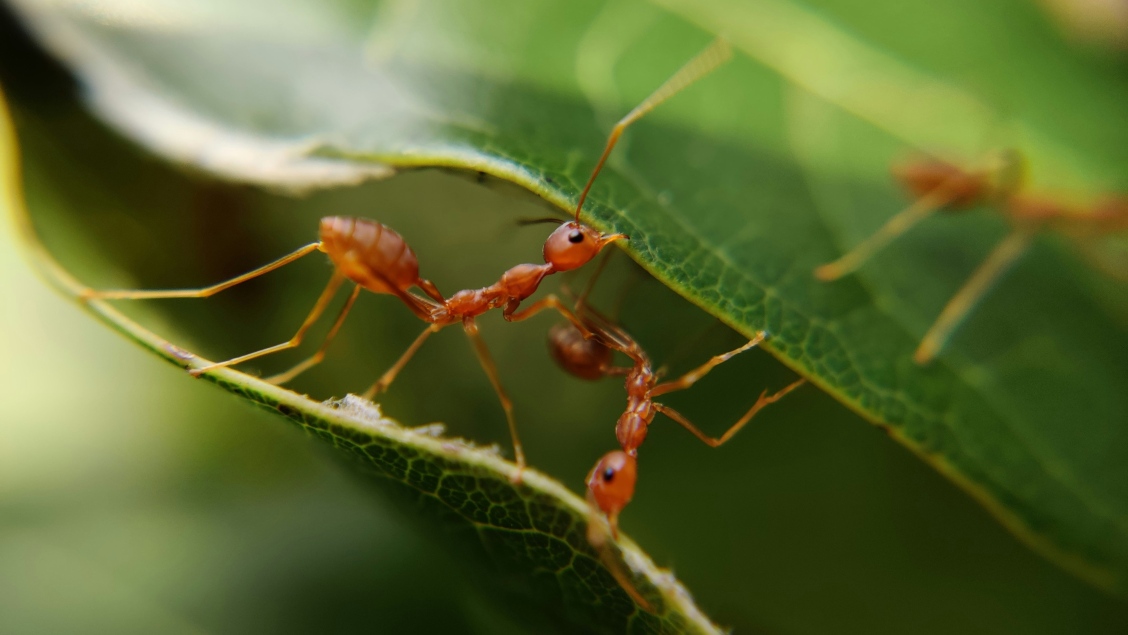
How Sugar Affects Gut Microbiota
Sugar is often attacked for its negative effects on our health. But how does sugar affect gut microbiota?
The human gastrointestinal tract is filled with microbiota, a community of microorganisms that we have co-evolved with over thousands of years to form an “intricate and mutually beneficial relationship” with. The food we eat is the main fuel for our gut microbiota. So, understanding what the effects certain ingredients have is key.
Here, we’ll look at what effect sugar has on gut microbiota and what this means for our health.
Defining gut microbiota
Microbiota refers to the living microorganisms found in a defined environment, such as oral and gut microbiota. However, microbiome is a more encompassing term that refers to the collection of genomes from all the microorganisms in the environment, including the microbiota and others.
Gut microbiota is a complex collection of microorganisms in the human gastrointestinal tract that has a profound influence on health. It has a range of functions, which include:
- Harvesting energy from digested food and breaking down complex molecules in meats and vegetables.
- Protecting the body against pathogens.
- Regulating immune function (an estimated 70% of the immune system resides in the gut).
- Strengthening the biochemical barriers of the gut and intestine.
The components of the food in our diets provide nutrients for our body and substrates for gut microbiota. Thus, “what we eat shapes the structure, composition, and function of the gut microbiome”.
Sugar consumption is rising
Sugars are naturally found in a range of foods including fruits, vegetables, grains, and dairy. Consuming whole foods with natural sugars is not detrimental to our health, because the body digests them slowly and steadily supplies energy to its cells.
Basically, the issue is with free sugars. This can be in the form of added sugar, which is typically used to increase sweetness and flavour or extend shelf life, or those naturally released in fruit juices. ‘Free’ means the food does not need to be broken down to release the sugar, meaning the body absorbs them much faster.
But what foods contain free sugars? The biggest contributors are soda, energy, and sports drinks, followed by grain-based desserts and fruit drinks.
The Western diet is characterised by a high intake of dietary sugars and low intake of vegetables, fruits, and dietary fibres. Recently, the consumption of foods rich in simple or added sugars has grown not only in high-income countries but in middle- and low-income countries too.
General effects of sugar
Sugar consumption is characterised by a range of negative effects on the body, which include:
- Development of dental caries;
- Obesity;
- Diabetes;
- Cardiovascular disease;
- Fatty liver disease.
But how does sugar specifically affect our gut microbiota?
How sugar affects gut microbiota
The open access research published in MDPI journals is helping to make research on the effects of sugar more accessible. Let’s look at some specific studies that collectively help to establish a broad picture of how sugar affects gut microbiota’s ability to maintain intestinal lining.
Sugar upsets the balance of bacteria
An article in Nutrients investigates how sugar causes bacterial imbalances.
Basically, the gut features a complex system of many species of bacteria. The four dominant families are Firmicutes, Bacteroidetes, Proteobacteria, and Actinobacteria. A high intake of sugar modifies the ratio between Proteobacteria and Bacteroides.
This happens when excess sugar is not absorbed in the small intestine and is consumed by Proteobacteria that utilise simple carbohydrates, thus increasing their numbers at the expense of Bacteroides that break down complex carbohydrates. Accordingly, such an imbalance is known as dysbiosis.
Bacteroides produce short-chain fatty acids by breaking down complex carbohydrates, but what do these do?
Sugar reduces short-chain fatty acids
An article in Diabetology highlights how sugar can affect the production of short-chain fatty acids (SCFAs).
SCFAs are metabolites that are produced when microbiota break down nondigestible fibre found in foods such as fruits, vegetables, and legumes. SCFAs help support the integrity of the intestinal barrier, which allows for essential nutrients to pass through and immune sensing to occur whilst restricting pathogenic molecules and bacteria.
The study highlights that excessive sugar intake may “directly affect the composition and functionality of the gut microbiota”. This accordingly means the gut’s ability to maintain the intestinal barrier will be affected. Therefore, its immune functions and nutrient absorption capabilities will be reduced.
The importance of intestinal health
Finally, an article in the International Journal of Molecular Sciences looks at sugar’s impact on the intestinal walls more closely.
As mentioned, the intestinal lining is a physical barrier that allows nutrients to be absorbed and blocks pathogens and bacteria. This is enabled by a mucus layer, which is the “first line of defence” against pathogens and bacteria.
Importantly, high dietary sugars markedly trigger an increase in mucus-degrading bacteria. As the mucus layer is increasingly affected by erosion, “a large number of bacteria will reach the epithelial cells and trigger inflammation”.
Inflammation is a defensive immune response that sends white blood cells to the affected sites that, when left unaddressed, causes damage to cells, tissues, and organs. Ultimately, this can lead to cancer or other potentially life-threatening illnesses.
Simply, sugar consumption causes changes in the gut microbiota that can lead to inflammation and decreased immune-regulatory properties, which can pave the way for more serious health problems such as metabolic disorders and inflammatory bowel diseases.
Researching for better health
Improving gut health requires research that spans across disciplines. The research highlighted above comes from various journals, including Diabetology, Nutrients, and the International Journal of Molecular Sciences, which all specialise in different areas. Accordingly, to improve global health in response to changing habits, such as the rising consumption of sugar, we need a focused and global approach.
Open access publishing supports this by making research freely available to all. MDPI makes all its research immediately available worldwide, giving readers free and unlimited access to the full text of all published articles.
Are you looking to contribute to this global effort? Why not consider submitting to one of our journals? See our full list of journals here.
Being mindful of your diet’s effect on your body is not enough. You must consider the gut microbiota it supports too. Basically, reducing free sugar consumption can help maintain your intestinal lining, which will prevent inflammation and preserve the function of your immune system.











Where is the evidence that the gut microbiome has “co-evolved with over thousands of years”?
The sentence you are highlighting references this paper, hyperlinked in the text: https://pmc.ncbi.nlm.nih.gov/articles/PMC5433529/
All the best,
Jack
How does strictly maintained low sugar diet, affect gut microbiota ?
Good question. Deserves a good answer.